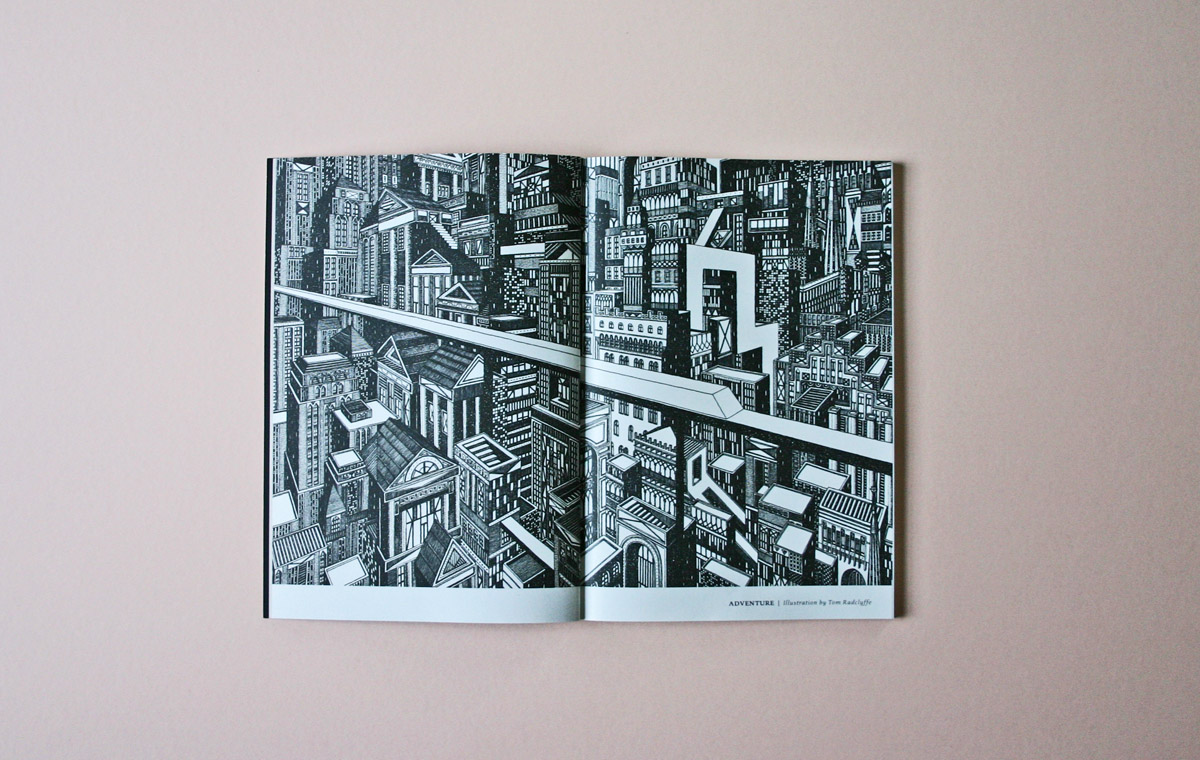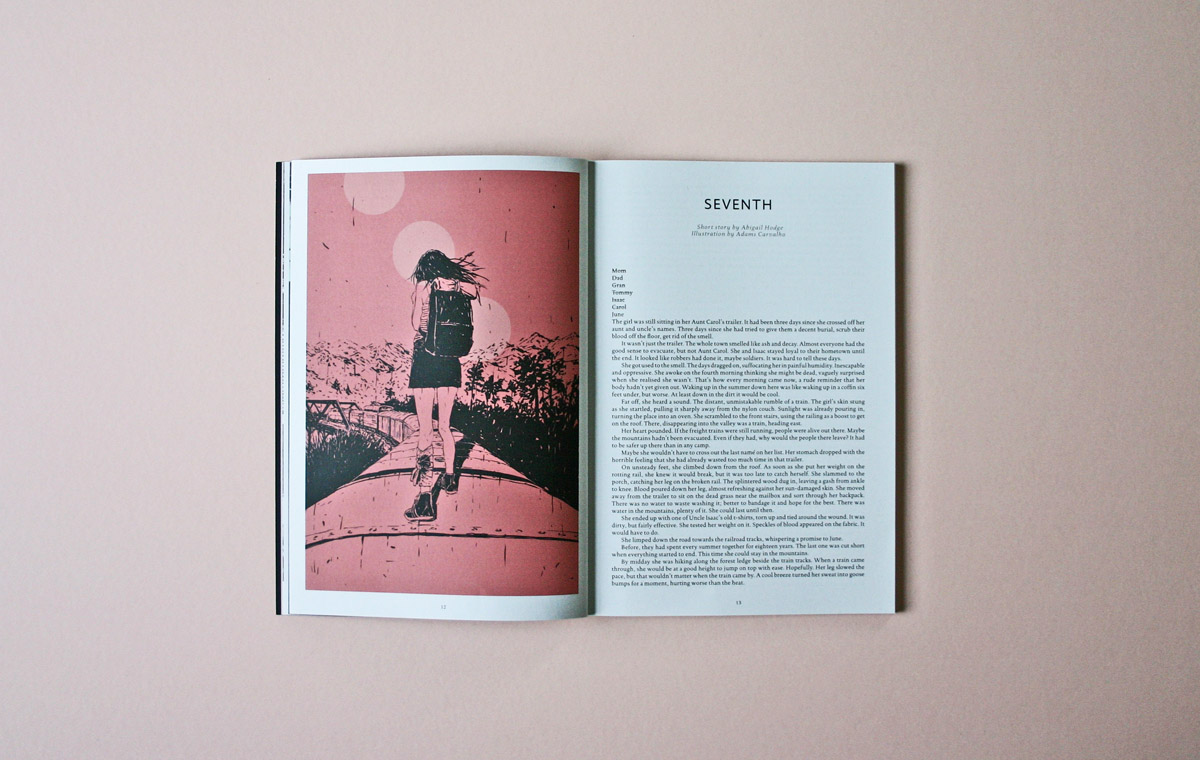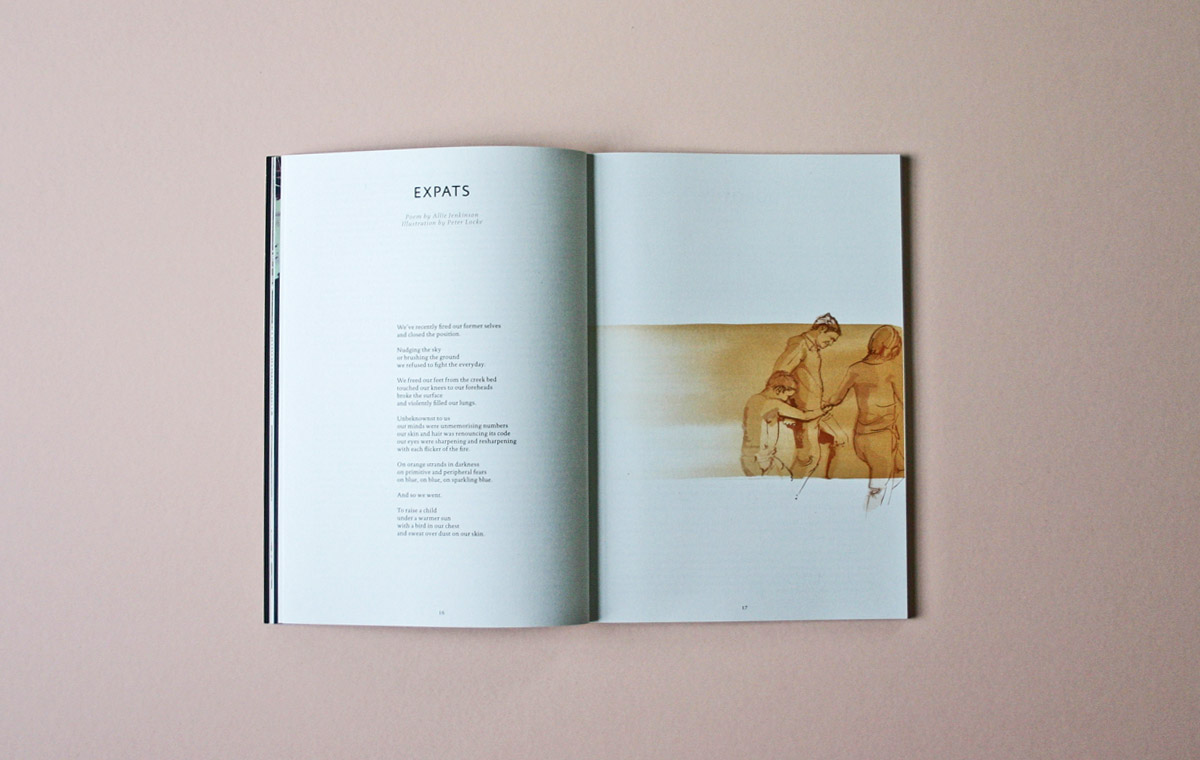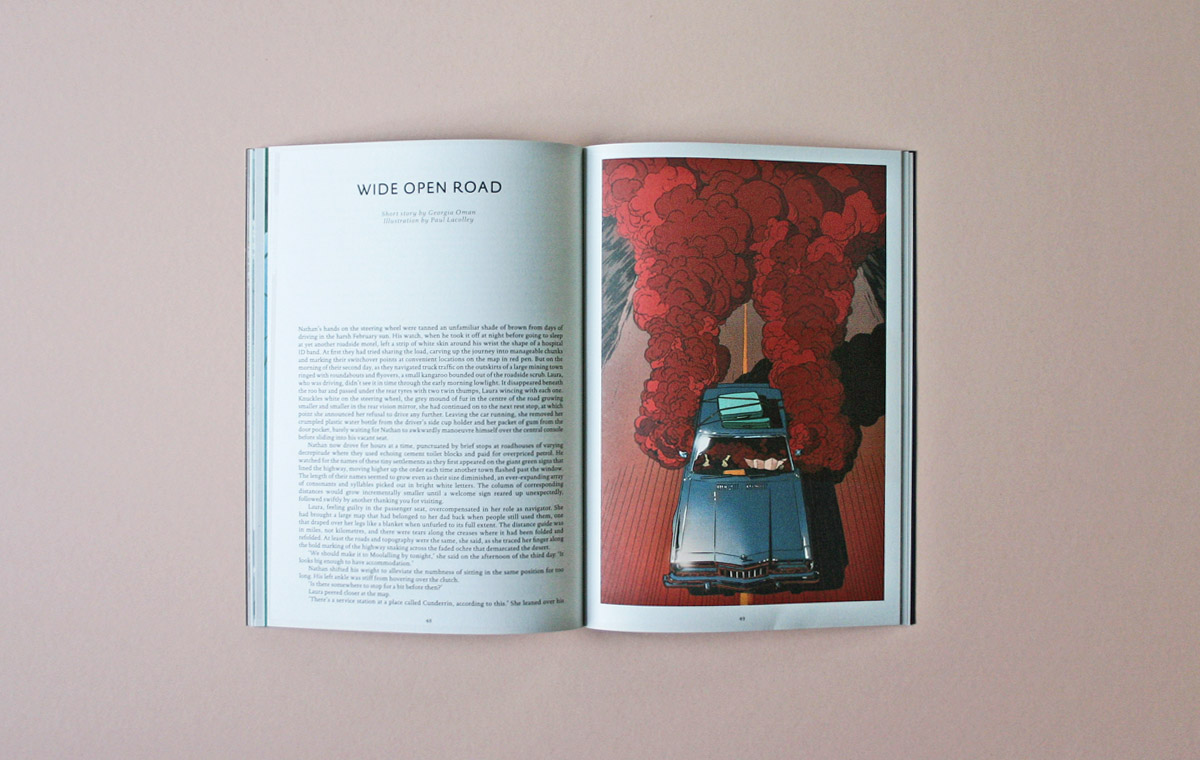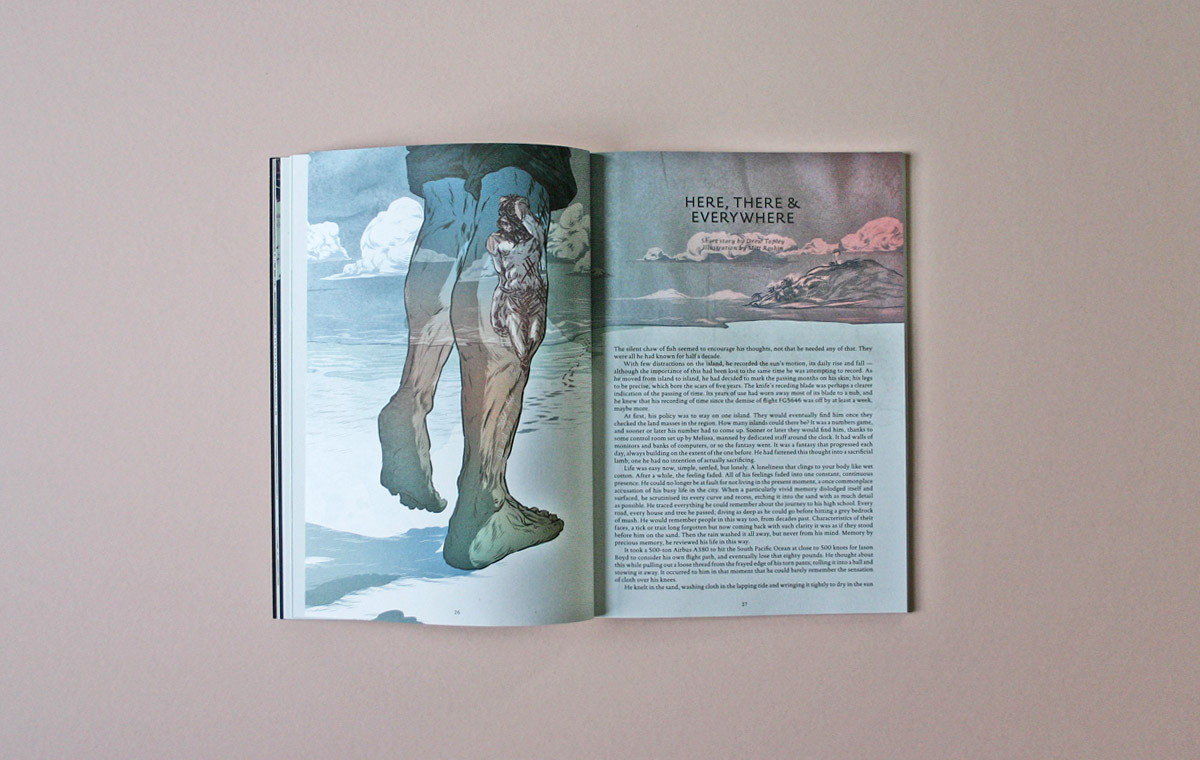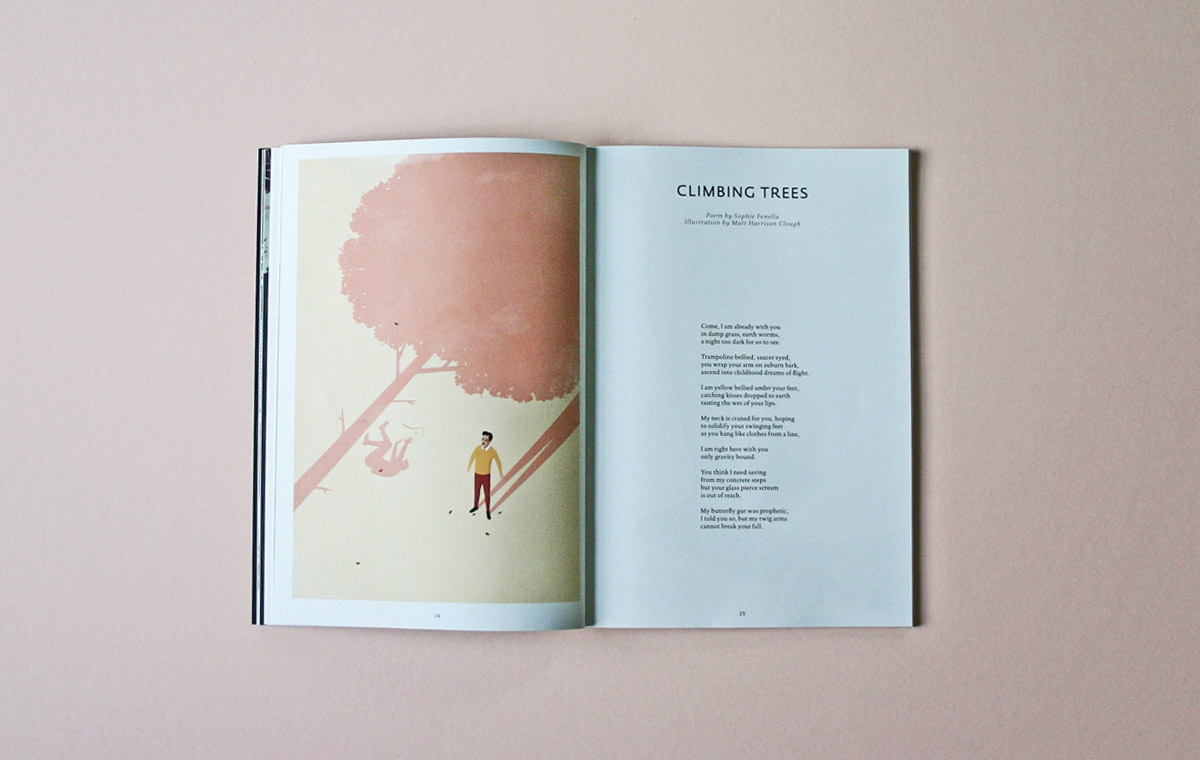A family forges new bonds as they battle a monstrous rat in Valerie Martin’s short story, taken from her kaleidoscopic short story collection, Sea Lovers.
Lily’s hair was her mother’s pride. In the afternoons, when she came home from school, she sat at the kitchen table, her head resting on the back of her chair, while her mother dragged the wooden brush through the long strands. Lily told her mother what had happened at school that day, or she talked of her many ambitions. Her mother, preoccupied with her work, holding up a thick lock and pulling out with her fingers a particularly tenacious knot, responded laconically. She looked upon this ritual of her daughter’s hair as a solemn duty, like the duties of feeding and clothing.
One afternoon they sat so engaged, conversing softly while outside the rain beat against the house. Lily’s mother observed that she couldn’t take much more rain, that it would surely rot her small, carefully tended vegetable garden, that it seemed to be rotting her own imagination. Lily agreed. It had rained steadily for three days. Her head rose and fell, like a flower on its stalk, with each stroke of her mother’s care, and each time it did she lifted her eyes a bit, taking in a larger section of the tiled floor before her.
Her mother shouted and threw the brush at the stove.
Lily sat up and looked after the brush. She was quick enough to see the disappearing tail and hindquarters of a rat as he scurried beneath the refrigerator. These parts, Lily thought, were unusually large, and this notion was quickly confirmed by her mother’s cry as she clung momentarily to the edge of the table. “Good Christ,” her mother said. “That’s the biggest rat I’ve ever seen.”
Lily drew her legs up under her and watched the spot where the rat had been. Her mother was already on the telephone to her father’s secretary. “No,” she said, “don’t bother him. Just tell him there’s a rat as big as a cat in the kitchen and he needs to stop at the K&B on the way home for a trap. Tell him to get the biggest trap they make.” When she got off the phone, she suggested that they move to the dining room to finish Lily’s hair. “It’s the rain,” her mother said as she closed the kitchen door carefully behind them. “The river is so high it’s driving them out.”
Lily sat at the dining table and pulled her long hair up over the back of her chair. Her mother resumed her vigorous brushing. It was strange, Lily thought, to sit at the big dining table in the dull afternoon light. The steady beating of the rain against the windows made her drowsy, and her mind wandered. She thought of how the river must look, swollen with brown water, swirling along hurriedly toward the Gulf of Mexico. She had never been to the mouth of the river, though she had gone down as far as Barataria once with her father. It had not been, as she had imagined, a neat little breaking-up of water fingers, the way it looked on the map. Instead, it was a great marsh with a road through it. There were fishing shacks on piers, wood, and other odd debris scattered in the shallow areas. She remembered that trip clearly, though two years had passed and she had been, she thought, only nine at the time. They had stopped to buy shrimp and her father had laughed at her impatience to have hers peeled. That was when she had learned to peel shrimp, and she did it so well that the job now regularly fell to her.
Her mother had not stopped thinking of the rat. “I can’t get over his coming out in broad daylight like that,” she remarked as she pulled the loose hairs from the brush.
“Who?” Lily asked.
“That rat,” her mother replied. “I don’t even want to cook dinner with that thing in there.”
Lily could think of no response, so she stood up, turning to her mother and fluffing her hair out past her shoulders.
“That looks lovely,” her mother said, touching Lily’s hair at the temple. Then, as if she were shy of her daughter’s beauty, she drew her hand away. “Do you have a lot of homework?” she asked.
“Plenty,” Lily said. “I guess I’d better get to it.”
When her father arrived that evening at his usual time, it was with chagrin that his wife and daughter learned he hadn’t gotten their message and had come home trapless to his family.
“Well, go out and get one now,” her mother complained. “I don’t want to spend a night in the house with that thing alive.” “It’s pouring down rain,” Lily’s father protested. “I’ll get one tomorrow. He’s probably moved on already anyway.”
“Give me the keys,” she said. “I’ll get it myself.”
Lily stood in the kitchen doorway during this argument, and she stepped aside as her mother came storming past her, the keys clutched in her angry fist. Her father sat down at the kitchen table and smiled after his affronted mate.
“Did you see this giant rat?” he asked Lily.
“Sort of,” she said.
“Are you sure he wasn’t a mouse?”
“I think it was a rat,” Lily speculated. “His back was kind of high, not flat like a mouse.”
“When have you ever seen a rat?” her father asked impatiently.
Lily looked away. She had, she realized, never seen a rat, except in pictures, and she knew that if she said, “In pictures,” her father would consider her to have less authority than she had already. “He was big, Dad,” she said at last, turning away.
When her mother pulled the trap from its purple bag, Lily felt a twinge of sympathy for the rat. The board was large; the bar, which snapped closed when it was set, was wide enough to accommodate Lily’s hand; the spring was devilishly strong and so tight that her father forced the bar back with difficulty. He tested it with a wooden spoon, and the bar snapped closed, lifting the board well off the floor. Her father baited it with a slice of potato, and the family turned out the lights and settled in their beds. Lily lay with her eyes open, listening for the snap of the bar, but she didn’t hear it, and while she was listening she fell asleep.
The next morning the trap was discovered just as it had been left. Lily’s father gave her mother a cold, skeptical look and sprang the trap again with a spoon. Her mother concentrated on cooking the breakfast, allowing the matter to drop. When he had gone to work, she turned to Lily as if to a conspirator and said, “I’ll get some poison today and we can try again tonight.”
Lily didn’t think of the rat again during the day. Her schoolwork was oppressive, but at lunch break, for the first time that week, the students were turned out of doors. The clouds had cleared off, leaving a sky of hectic blue, a sun that beat down on the wet ground with the thoroughness of a shower. Lily and her best friend sat on the breezeway, watching the braver students, who sloshed through the puddles in search of exercise. They discussed their summer plans and confided in each other their mutual fear that they would be separated the following fall.
“If I get that grouch Miss Bambula,” Lily’s friend said, “I think I’ll die. She looks just like a horse.”
Lily wondered which would be worse, to be with her friend and have Miss Bambula or to be without her friend and Miss Bambula. One of the boys in the yard hailed the two girls, holding up for their long-distance inspection the squirming green body of an anole. Lily stood up and went out to him. She liked anoles and this one, she saw at once, was of a good size.
That afternoon, when her mother brushed her hair, the rat didn’t appear. “Maybe your father’s right,” her mother said hopefully. Later, after she had practiced piano, Lily rejoined her mother in the kitchen to help with dinner. She sat at the table with a large bowl of green beans, which she proceeded to snap, throwing the ends into a small bowl, the fat centers into another. Her mother stood at the counter, peeling potatoes. They worked without speaking, and it was so quiet in the room that they heard the scratching of the rat’s claws against the floor before they saw him. They both turned, looking in shocked silence at the refrigerator. His ugly face appeared first; then he took a few timid steps forward and stood before them. Lily saw that his black lips were drawn back over his teeth and his cheeks pulsated with his nervous breathing. She sucked in her own breath and dropped the bean she was holding.
The rat made a sudden dash for the stove, moving so quickly that Lily’s mother let out a little cry as she jumped out of his path. “Mama,” Lily said softly as they both bolted for the kitchen door. Her mother held the swinging door open and wrapped her arm protectively around her daughter’s shoulder as she passed through. In the dining room they stood together and Lily allowed herself, for a moment, the luxury of closing her eyes against her mother’s shoulder. “Don’t worry, baby,” her mother said. “I got the poison this morning; we’ll get him tonight.”
Lily’s father was incredulous when they told him of the intruder’s boldness, and he smiled in disbelief when Lily, holding up her hands, estimated the creature’s true dimensions. “She’s not kidding,” her mother said angrily. “He’s really big. We got a good look at him this time.”
“All right,” her father said. “We’ll put out the trap again. I just wish he’d show his face when I’m here.”
“Christ,” her mother replied. “That’s not my fault. If he’s still here tomorrow I’ll take his picture. Would you believe that?”
“That’s not a bad idea,” her father said.
That night, before they went to bed, the family gathered in the kitchen and laid out their arsenal. The trap was baited and placed near the wall; the poison, which was inside a plastic box with a hole at one end, was placed near the stove with the hole turned toward the wall.
“Can he get in that little hole?” Lily asked.
“I hope so,” her mother replied.
Alone in her bed, Lily slept, then woke, then slept again.
Toward morning she opened her eyes abruptly, with the sensation that she had cause to do so. She raised herself on one elbow and looked out into the darkness of her room. She could see nothing, but she heard distinctly a scratching sound, the sound, she knew at once, of claws against wood. She fell back and put her hands over her mouth, as if to hold in a scream, though she made no sound. Her heart pounded so furiously that she could hear it, and she felt in her legs, which were drawn up now beneath the sheet, the sudden ebbing of strength that usually follows a nightmare. The sound continued, and it seemed to her that it became louder, closer, as the moments passed. She consoled herself with the thought that the rat would doubtless find little to interest him in her room and would soon opt for the swift or slow death that awaited him in the kitchen. If only she’d put a trap in her room, she thought.
The scratching was very close and then, when it sounded as though the creature was under the bed, abruptly it stopped. Lily breathed uneasily, afraid and unable to move. Then she heard a sound she was never to forget, the metallic protest of the bedsprings as they received the weight of the animal’s body. Lily’s eyes burned into the humid dark air and she opened her mouth, but still no sound came. She had begun to perspire; her gown clung wetly to her narrow chest. Again she heard the squeaking springs, and this time she knew exactly where the sound came from. The rat was just behind her head. Though she couldn’t see him and didn’t have the strength even to turn her head so that she might see him, she felt the nervous twitching of his snout, the horrible inhalation of his breath, as he pulled himself up over the headboard of the bed and looked down upon the paralyzed young girl before him.
For a moment the animal contemplated her, and then, as if they were one, both moved. The rat sprang forward, his front legs stretching out before him as his back feet propelled him out into the air. Lily, finding her strength and her voice at once, sat up, throwing her hands over her head and screaming “No!” — but it was too late. Her left hand encountered the rat’s side and inadvertently she slapped him toward her own back. He landed squarely on the top of her head, and as she swung her legs over the side of the bed and rose to her feet, he slid down her back. His body was enormously heavy. In his panic he clawed at her hair, tangling himself and enraging Lily so that she threw herself against the wall, thinking to crush him. This gave him the leverage he needed to pull free of her hair. He slipped down over her buttocks and dropped to the floor. He was running when he hit the wood, scrambling back toward the bed. Lily was already in the hall. Now, she thought, she could run until she dropped. But she only ran to her parents’ door, throwing it open before her with a scream. Her mother was raised up on her elbow looking at her; her father sat on the edge of the bed fumbling for his slippers. It was to her father that she ran, but not for comfort. She caught him by his shoulders, forcing him to fall back across the sheets, and she held him down there, her hair falling wildly about her as she screamed into his astonished face, “You kill him, you kill him now! Go and kill him now!”
Her mother sat up, pulling back Lily’s hair, feeling her neck and shoulders frantically. “Did he bite you?” she asked. “Are you cut?” Then Lily turned on her mother, thinking that she would strike her, but when she was folded into the eager, smothering embrace, she gave in and clung to her mother’s neck, hugging her close. Her mother glared over the girl’s shoulders at the still prostrate form of her husband and repeated to him the injunction his daughter had just given him. “Go and kill him now,” she said. “Don’t leave this house until that animal is dead.”
Lily’s father sat up and resumed fumbling for his slippers. Lily and her mother lay locked together and neither watched him as he shuffled off toward the bathroom. They clung to each other, pulling the sheets up and adjusting the pillows so that they could sleep as they had when Lily was a baby, with their arms around each other. Outside, the rain began, softly at first, punctuated with the low rumble of thunder and flashes of lightning that radiated like nerves across the sky. Lily’s father had turned on the light in the hall and she could hear him in the kitchen, opening the refrigerator, running water in the sink. The rain grew more intense; it beat insistently against the window in her parents’ room, and she thought of how it must be outdoors, beating the flowers down into the already waterlogged soil, beating the leaves back on the trees. She thought especially of the big plantain tree in the side yard, of how it bent down in the rain, its great leaves shiny and smooth, like sheets of brilliantly painted plastic. The rain washed over the house and seemed to carry great waves of sleep with it, impossible to resist.
In the morning Lily and her mother found her father asleep at the kitchen table, his arms spread out before him, his cheek pressed against the wood, his mouth slack from weariness. He had prepared himself a cup of coffee, which sat on the table near his left hand, but he had not drunk half of it.
Lily’s mother woke him impatiently. He lifted his head, rubbed his eyes, and looked sleepily at his wife, then at his daughter. He put out his hand to Lily and drew her toward him. “Are you OK now, baby?” he said. “Are you sure it wasn’t a dream?” Then, as she was about to protest, his face changed. He looked across her shoulder and Lily knew, without turning, what he saw. Her mother followed his gaze and her expression changed from aggravation to horror. Lily turned and saw him. He had come out silently and stood, calm, though, as always, poised for flight. He moved his ugly head back and forth, watching, sniffing, and Lily could hear again the horrible sound of his breathing. He confronted them and they couldn’t look away, for his boldness was as wonderful as his size. Lily’s mother reached back suddenly, took the half-full coffee cup, and threw it with all her strength at the animal. He was gone before the cup hit the ground.
For two days and nights the rat was under siege. The animal sensed the change in his situation and responded with the obsessive wiles of the hunted. Traps and poison failed to entice him, though he made frequent appearances in the vicinity of both. The family spent the weekend in an ecstasy of determination, baiting all possible hiding places with poison. Lily’s parents moved the stove and refrigerator out from the wall. Lily helped to seal off any holes they discovered, along the baseboards, in the window casings, holes Lily thought much too small to be of use to the large creature that had glared at them so balefully. Her father assured her that it was in the power of rats to make themselves fit into small places, that they were like yogis who know the secret of folding themselves down into suitcases. Lily plugged the holes with spoons of wet plaster. Now that her father believed in the creature’s existence, he seemed unable to give it enough credence, and she had been elevated from the position of hysterical visionary to that of reliable reporter on the natural scene.
On Monday morning her father called his office to say he wasn’t coming in. The sky was black with clouds, and flood predictions were ubiquitous; he used this as his excuse. Lily’s mother called the school and said that she was ill and needed Lily at home. This easy lie shocked Lily, though she was glad of it. Then the three sat at the kitchen table and discussed their plans. They had sealed the rat in the kitchen; they were sure of this. And when next he appeared, he wouldn’t find it easy to escape. The pots and pans sat out on the floor in little groups; all the food was in boxes in the dining room. The cabinets stood open and empty. If he showed his face again there would be no place left to conceal it.
But though they sat at the table scanning the room for the better part of the morning, he took them by surprise. He appeared inside the cabinet beneath the sink, and none could say where he came from. Lily’s father, who had armed himself with a hammer and a small ax, leaped to his feet and raced to the animal. By the time he had crossed the room the rat was gone. He fell on his knees and inspected every inch of the cabinet with his hands. “How the hell does he do it?” he said, and then, “Oh, this is it.” Lily and her mother joined him and they all looked with wonder at the hole, which was really a broken flap in the plasterboard at the back of the cabinet. Behind it was another hole, smaller, ragged, and deep. It opened into darkness, and the outside edge of it was lined with half an inch of wood.
“Do you know what it is?” Lily’s father asked.
“Why is it so dark?” she said, for it seemed to Lily that such a hole should open into daylight.
“Because it’s inside a drawer,” her father replied. He seemed immensely pleased with this pronouncement, like a detective who has discovered the long-sought final clue.
“The old dresser?” her mother said.
Her father stood up, gripping his gleaming ax, and started out the back door for the porch. Then Lily understood. On the porch there was a dresser in which, as a baby, she had kept her toys. It backed up against the house, against, she realized, this very cabinet. The rat had disappeared into the dark hole, but the dark hole was the inside of that dresser. Lily and her mother exchanged looks of mild surprise; then they too rushed out onto the porch. Her father stood poised before the dresser. “He’s in there,” he said. “I can hear him.”
“Which drawer?” her mother asked.
“The middle, I think.”
“What are you going to do?” Lily cried. She was suddenly desperately frightened.
“I’m going to open the drawer just a little and try to catch him in it.” As he said this he squatted down, laying his ax near his feet, and pulled the middle drawer open an inch. Lily could hear the scratching of the animal’s claws against the wood. Another inch, she thought, and they would see his dreadful face. Her father pulled the drawer out carefully, leaning back a little so that his face wouldn’t be near the opening. Now he could see into the drawer. Then, abruptly, he pulled the drawer all the way out and threw it down on the porch. Lily saw her old metal tea set scattered across the bottom, and a plastic strainer she had once used for sand flew out of the drawer and rolled in a dizzy circle toward the screen. Except for that, the drawer was empty, and the space in the dresser where the drawer had been was empty as well.
“Did he go back in the kitchen?” her mother asked. The hole that had allowed the creature’s easy entrance into their lives was now visible, and they stood looking into it as their greatest oversight. They heard a scratching, then a thudding sound that came distinctly from the top drawer. The rat was trapped at last and he was frantic. Lily’s father turned toward them. “Get back,” he warned. Then he pulled the drawer out slowly, carefully, an inch, then another. Inside the drawer the rat was still, crouched, silent, as light flooded his last dark refuge.
Lily grasped her mother’s hand and found it cold but willing to hold her own. Her father leaned over the dresser, placing one hand against the front of the drawer while with the other he began to pound on the top. Still there was no sound, no movement from inside the drawer.
“Is he in there?” Lily’s mother asked. Her father turned his head to answer his wife, and in that moment the rat made his move. He hit the front of the drawer with such force that her father’s hand fell away, leaving the crack open and unprotected. In the next instant the creature flew up before them, straight up; his legs battled the air like wings, his teeth were bared. He leaped straight at Lily’s father, who staggered backward and put out his hands to stop this attack. But the rat caught him at the base of his throat, sinking his sharp teeth into the flesh and clinging to the shirt cloth with his sharp claws.
Her father made a gasping sound and whirled around, clutching the animal at his throat. Lily saw his face—his eyes opened wide in shock, his teeth bared too now, in such fury as she had never imagined possible. The rat clung to him as he fell to his knees, dropping one hand for the ax while the other closed over the animal’s face. His fingers went inside the rat’s mouth, prying the teeth from his flesh, and when he had pulled them free he raised the gray body over his head and dashed it to the floor. Then the rat screamed. It was the only sound he had made in the struggle, and his voice was high, clear, terror-stricken. Lily saw the oily edge of the ax blade as it came down through the air. She remembered how her father had sharpened and oiled it that morning in preparation for this blow.
The edge came down and Lily turned to her mother, who was too stunned by what she saw to look away. There was the soft sound of flesh giving way, of small bones cracking, and it was quiet. When Lily looked back, the rat was in two pieces, his head and forequarters on one side of the ax, his back legs and long tail severed completely and thrown a foot away by the force of the blade. Lily’s father stood looking down at the sight, clutching his throat with one hand. He knew he had won the contest, but his rage, Lily saw, was not yet under control. Her mother rushed to him, throwing her arms about him with a passion she had never shown him before, and he held her against him tightly. Lily looked away, allowing her eyes their fill of the curiously rewarding sight of the rat’s bisected body. His blood oozed out upon the boards from his wounds and from his open mouth, which was already stiffening with death. The wonder of his death afflicted her. A moment before he had threatened everything; now his harmless body lay before her, bereft of horror, only dull, large, gray, mysteriously still. She turned away from them all and went back into the kitchen. Her hands were sticky from fear and she washed them at the sink.
That night Lily slept fitfully. When she woke she could think of nothing but the rat, of how she had lain and listened to him as he came closer and closer. She sat up and looked about the room. Didn’t she hear the scratching of his claws against the floor; wasn’t that hushing sound his rapid breathing? She lay back and turned to face the wall.
Her mother had kissed her when she went to bed, and her father had held her for a moment with warm confidence. She had touched the bandage on his neck tentatively. The doctor had suggested that the wound would become more painful before it began to heal. A rat bite, he told the family, was no joke, but there was no reason to expect complications. Her father had astounded the doctor with the story, keeping, as he talked, one hand resting protectively on his daughter’s shoulder. He had, he was convinced, done what was necessary to set her fears at rest.
But now she was as full of fear as ever, and she knew she wouldn’t sleep. She got up and turned on the light in her bedroom; then she looked under the bed and in the closet. But not seeing anything didn’t give her the rest she sought. At length she decided to go out, to take the plastic bag out of the garbage can and look again on the remains of her enemy. She slipped on her robe, turned off her light, and went stealthily down the hall, passing her parents’ bedroom door without a pause.
She opened the kitchen door, unlatched and opened the screen, and stepped out on the porch. The rain had stopped, and through the swiftly moving clouds the moon cast its desultory beams. Lily accustomed her eyes to the light and to the unexpected beauty of the scene before her. She focused her eyes on the moonflowers, like pools of milk among the dark leaves that covered the fence. The roses nearby raised their thorny branches, holding out papery leaves and flowers, gray and black, toward the sky. Her mother’s vegetable garden fairly hummed with life, and, as she stood there, Lily thought of her mother and of how they had worked together one day, preparing the soil for the seeds.
Her mother had turned the soil with a shovel, and Lily, crouched barefoot in the dirt, came behind her with a garden spade, breaking the big clods down with childish energy. She stopped, then stood up and stepped forward into the rough dirt her mother had just turned. As her foot came down she noticed that the soil was warm; it invited her to press her toes into it. Lily looked at her feet and smiled, overcome with a delicious sensation. “What’s funny?” her mother asked, and when Lily looked up she saw that her mother was smiling on her in the same way she smiled sometimes on her roses, with undisguised admiration.
“It’s warm,” Lily said. “Underneath. You should take off your shoes.”
Her mother’s smile deepened and she indicated her shod foot, which rested on the wing of the shovel, with a look that explained her dilemma: She couldn’t dig barefoot. Then she bent down and pressed her hand into the dirt near Lily’s feet. She dug her fingers down and came up with a handful of the dark soil. She studied it intently for a moment, sifting it through her fingers. She had lectured Lily that morning on this chore and made it clear that the preparation of the soil was the most important work they would do that day. Everything, by which Lily understood her to mean the future of the garden, depended on its being done right. Now it was Lily’s turn to smile, for she saw that her mother couldn’t take her mind off the importance she attached to doing this work correctly. It was true, her fingers told her, the soil was warm, but her fingers asked a more penetrating question: Would it yield?
Examining this memory as she stood on the porch in the warm night air, Lily paused and shook her head affectionately at the thought of her mother’s passionate gardening. The fruit of that passion stood before her: tomatoes and eggplants heavy on their vines; lettuce like great balls of pearl, luminous in the darkness; the airy greens of the carrots, rustling continuously with the movement of the air; the black tangle of the green peas, climbing skyward on their tall tubes of screen. The scent of the mint and parsley bed rose to Lily, and the sweetness of the air drew her out toward the steps. She looked down at the drawers of the old dresser, which lay scattered on the porch. Her mother had washed them furiously, as if to wash away the evidence of a desecration.
Then Lily thought of the rat, and she looked toward the garbage can with a sensation of dismay. It would be, she thought, foolish and unnecessary trouble to pull out his corpse now. She could consult her memory for a fresh, distinct, and detailed picture of his death; she could see, in her mind’s eye, the blood darkening around his mouth, the dullness of his dead eyeballs. She wasn’t certain that he wouldn’t seek her out again, but she thought he would never again seek her in that particular form. His menace had quite gone out of that form; she had seen it with her own eyes. Her father had discarded the pieces of the rat’s body without anger; he had even commented on the creature’s remarkable size, taking, Lily had observed, some comfort in having defeated so formidable an enemy. Now that he was a danger to no one, the rat possessed the power to be marvellous.
Lily turned away, pushing her hair back from her face. She had told her mother she wanted her hair cut off and, to her surprise, had received no objection. But now this seemed an unnecessary precaution. She returned to her bed, possessed of a strange fearlessness; it was as insistent as her own heartbeat, and as she drifted off to sleep it swelled and billowed within her and she understood, for the first time, that she was safe.
‘The Consolation of Nature’ is a short story taken from Valerie Martin’s short story collection, ‘Sea Lovers’, published by Serpent’s Tail. Pick up a copy of the book at the Serpent’s Tail website.

